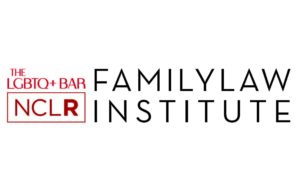Press & Media
NCLR Statement on SCOTUS Denial of Cert in Case Regarding Rights of LGBTQ Families to Be Recognized on Children’s Birth Certificates
Cases & Advocacy
Henderson v. Box
When Indiana began allowing same-sex couples to marry in 2015 after the U.S. Supreme Court recognized that same-sex couples have a right to marry in Obergefell v. Hodges, the Indiana Department of Vital Records refused to place same-sex spouses on their children’s birth certificates.
MoreLegislation & Policy
upEND Movement
NCLR supports the upEND movement to end the current child welfare system and replace it with a system that focuses on keeping children safe with their families, rather than on separating and regulating families of color. The existing child welfare system disproportionately surveils and separates Black, Native, and LGBTQ families, as well as families whose members have disabilities, causing deep and lasting harm to children and families. Racism is so deeply rooted in child welfare systems’ history, policies, and practices that they are not easily modified or revised. Rather, the system as we know it has to be ended in order to ensure racial equity. The upEND movement was begun by the Center for the Study of Social Policy.
MoreResources & Publications
Voluntary Declarations of Parentage
Press & Media
NCLR Applauds Passage of Historic New York Law Modernizing Surrogacy and Assisted Reproduction Protections
Resources & Publications
FAQ: Documents and Protections for LGBTQ People and Their Families During COVID-19 Crisis
Legislation & Policy
Surrogacy360.org Advisory Committee
NCLR is a member of the Advisory Committee for Surrogacy360, which seeks to provide acurate information for intended parents seeking to use surrogacy internationally in an ethical manner. NCLR does not generally recommend that U.S. parents engage in surrogacy arrangements outside of the United States because of the danger that children born through surrogacy may not be recognized as U.S. citizens and encourages parents to consult with experienced surrogacy and immigration attorneys in the U.S. before considering surrogacy abroad.
As a part of this Committee, in partnership with the Center for Genetics and Society, we have created a map of surrogacy laws across the U.S., including whether and how intended parents can access surrogacy as well as the protections provided for the rights of people acting as surrogates.
MoreLegislation & Policy
FAMILY Act
- Relationships & Family > Parenting
- Relationships & Family > Reproductive Justice
- Racial & Economic Justice > Race & Poverty
- Discrimination > Employment
The FAMILY Act would establish a national paid leave insurance program. Specifically, it would provide eligible employees with up to 12 weeks of partial income to address their own serious health condition, including pregnancy or childbirth; to deal with the serious health condition of a parent, spouse, domestic partner or child; to care for a new child; and/or specific military care-giving and leave purposes.
MoreLegislation & Policy
LGBTQ Family Law Institute
The LGBTQ Family Law Institute is a joint venture of NCLR and the LGBTQ Bar. The Family Law Institute allows experienced LGBTQ family law practitioners to share collective wisdom and to discuss cutting-edge legal strategies for representing members of the LGBTQ community. Members of the Family Law Institute convene in person annually and collaborate regularly via an online listserve. To find out more about membership or to see a directory of Family Law Institute member attorneys, please visit the LGBTQ Bar.
MoreLegislation & Policy
Uniform Nonparent Custody and Visitation Act
NCLR has long focused on protecting the parental relationships between LGBTQ parents and their children and has established many rights for families across the country through both case law and legislation. NCLR participated as an Observer in the Uniform Law Commission’s committee to draft a Uniform Nonparent Custody Act to ensure that the rights of LGBTQ parents were adequately protected in this Act.
More









